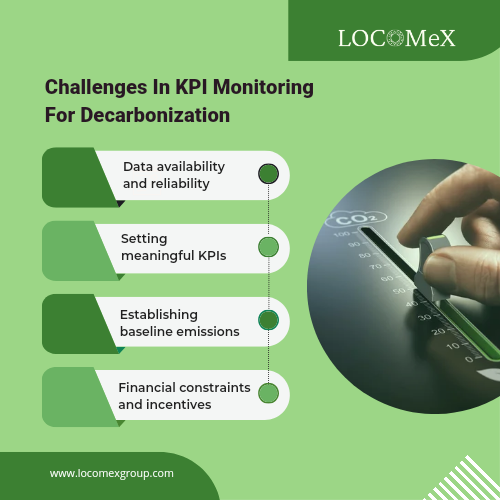The pressing need to combat climate change has led to a global focus on decarbonization, a crucial process to reduce carbon dioxide emissions and transition into a low-carbon economy. Achieving net zero emissions requires implementing a wide range of Eco-friendly technologies and clean energy solutions. Key Performance Indicators (KPIs) are critical in monitoring and evaluating progress in decarbonization efforts. The article explores the complexities and prospects linked to KPI monitoring during decarbonization, incorporating pertinent key terms and concepts related to the topic.
Understanding Decarbonization And Its Importance
The Role Of KPIs In Decarbonization
As the climate risk looms, prioritizing decarbonization becomes more critical than ever. Through effective KPI monitoring, decision-makers can identify gaps, measure impacts, and guide actions toward a sustainable and resilient future. Integrating low-carbon technologies, policy frameworks, and innovative energy services will be key to achieving ambitious climate targets. Organizations and governments must adopt sustainable practices, reduce emissions, and transition toward a carbon-free power sector.

Challenges In KPI Monitoring For Decarbonization
- Data Availability and Reliability Effective KPI monitoring relies on accurate and reliable data. However, gathering comprehensive data on CO2 emissions and other GHGs from various sources can be challenging due to data availability and quality issues. Harmonizing data collection methodologies and improving data-sharing practices are crucial to overcoming this challenge.
- Setting Meaningful KPIs
Defining relevant and meaningful KPIs is essential to accurately reflect decarbonization efforts’ progress. It requires a delicate balance between specificity and comprehensiveness to ensure that the metrics capture progress across diverse sectors and activities.
- Establishing Baseline Emissions
A significant challenge in KPI monitoring for decarbonization is establishing baseline emissions. It involves determining historical emission levels accurately, which can be difficult for industries with limited historical data. An appropriate baseline is critical for measuring emission reduction targets accurately.
- Financial Constraints and Incentives
Implementing Environmentally friendly technologies and energy efficiency solutions requires significant investments. Providing financial benefits and support to organizations and industries can facilitate the adoption of clean energy technologies and promote decarbonization.
Opportunities In KPI Monitoring For Decarbonization
- Technological Advancements Organizations can optimize energy demand through advanced energy modeling, while data analytics enhances data quality and streamlines reporting processes. Moreover, ESG data analytics and management software empower businesses to track, assess, and optimize their environmental, social, and governance performance.
- Policy Support and Private Sector Engagement Governments can be crucial in providing policy support and incentives to drive carbon reduction initiatives. Collaboration between the private and public sectors can steer innovative solutions and accelerate the adoption of clean energy technologies.
- Transition to Low Carbon Electricity Governments can be crucial in providing policy support and incentives to drive carbon reduction initiatives. Collaboration between the private and public sectors can steer innovative solutions and accelerate the adoption of clean energy technologies.
- Carbon Capture and Hydrogen Production Carbon dioxide equivalent capture technologies can help reduce power plants and industry sectors’ emissions. Hydrogen production through renewable sources offers a clean energy alternative, further contributing to decarbonization.



